Concrete nouns are, as the name suggests, one of the many types of noun. Concrete nouns form one of the primary types of nouns available. Concrete nouns are common words that get spoken in the English language on a regular basis. But what exactly are concrete nouns? And which words define them?
Let’s learn about concrete nouns in this short guide…
Watch as a video lesson
What are concrete nouns?
A concrete noun is a noun that denotes a tangible object or material. These objects can be touched, seen, felt, tasted, or heard. In short, they can be perceived by one or more of the five senses.
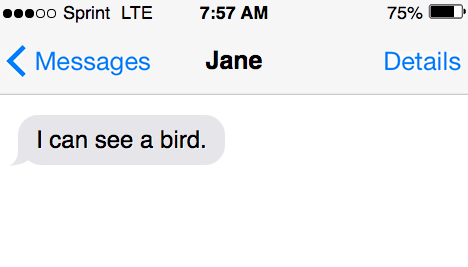
Given their nature, concrete nouns are vastly different from abstract nouns, as abstract nouns cannot be perceived by any of the five primary senses possessed by human beings.
| Concrete Noun | Example |
| Car | I see a car. |
| Sock | I put on my sock. |
| Drink | I would love a cold drink. |
| Woman | I see a woman walking down the street. |
Concrete nouns can be classified into various types, including:
- Common Nouns
- Proper Nouns
- Collective Nouns
- Possessive Nouns
- Countable Nouns
- Uncountable Nouns
Some common examples of concrete nouns include table, chair, water, fish, dog, etc.
| Form | Definition |
| Concrete Noun | A concrete noun is a noun that can be identified through one of the five senses (taste, touch, sight, hearing, or smell). |
The difference with abstract nouns
Concrete nouns and abstract nouns are massively different from each other. Concrete nouns, as discussed, can be identified by one of the five senses touch, taste, smell, sight, or hearing.
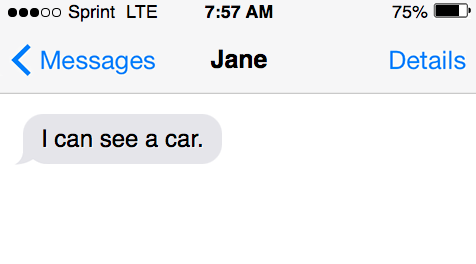
On the other hand, abstract nouns are not objects that can be perceived by one of the five senses. They can be called concepts that the makers of the language have constructed.
They convey a specific concept or idea.
| Concrete Noun | Abstract Noun |
| Book | Motivation |
| Car | Intelligence |
| Salt | Strength |
Some examples of abstract nouns are:
- Courage
- Strength
- Mobility
- Education
- Intelligence
- Stupidity
- Naivete
- Love
- Hate
- Decency
- Lethargy
- Procrastination
- Excitement
- Enthusiasm
- Energetic
- Confused
- Emotion
- Aspiration
The difference with collective nouns
The main difference between concrete nouns and collective nouns is that collective nouns are a subcategory of concrete nouns.
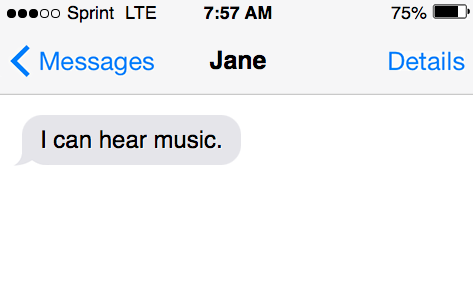
If you imagine a venn-diagram, concrete nouns would be the bigger circle, and collective nouns would be a smaller subset within the more extensive set. This implies that collective nouns are concrete nouns, but not all concrete nouns are collective nouns.
Here are some collective nouns:
- Team
- Choir
- Band
- Bevy
- Patrol
- Group
- Committee
Types of concrete nouns
Concrete nouns can be classified into six distinct subcategories. Each of these categories represents a distinct trait or characterization unique to the nouns it encompasses.
For instance, the uncountable subcategory includes nouns that are not quantifiable. This trait is unique only to uncountable nouns and not shared by other subcategories of concrete nouns.
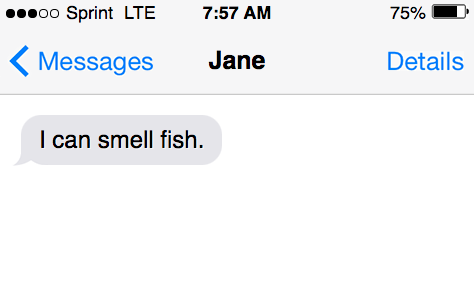
The six main subcategories of concrete nouns include the following:
Common noun
Common nouns are generic nouns; rather than naming individual things, persons, or locations, they typically describe classes of those things, people, and locations. They are only capitalized at the beginning of a sentence, and articles, determiners, and adjectives can be used to change them.
Some examples of common nouns are:
- Dad
- Grandma
- Prime Minister
- President
- Psychology
- Technology
- Inequality
- Society
- Name
- History
- Conflict
Proper noun
Proper nouns, as opposed to common nouns, are the names of certain people, objects, locations, businesses, etc. They are often not modified by articles, determiners, or adjectives and are consistently capitalized.
Some examples of proper nouns are:
- Delilah
- Microsoft
- Apple
- Steve Jobs
- World War I
- Hilary Clinton
- Robert Downey Jr.
- England
- India
- Ukraine
Collective noun
Collective nouns are names for singular objects containing multiple entities, including people, animals, places, things, and ideas. A team cannot exist except for its specific individuals, but people talk about teams as if they were distinct entities.
Collective nouns belong to a separate class of their own.
Some examples of collective nouns include:
- Pack (A pack of wolves)
- Herd (A herd of elephants)
- Posse (A posse of policemen)
- Bevy (A bevy of ladies)
- Litter ( A litter of kittens)
- Gaggle (A gaggle of geese)
- Flock (A flock of birds)
- Murder (A murder of Ravens)
Possessive noun
A possessive noun indicates the possession of an item. Adding an apostrophe “s,” or both to the end of a word creates possessive nouns most frequently.
Keep an eye out for the apostrophe and the letter “s” when attempting to determine if a word is possessive or not.
Some examples of possessive nouns are:
- Baby’s shoes
- Ginger’s poster
- John’s book
- Cat’s toy
- Dog’s bone
- Baby’s crib
- Boss’s car
- Bathroom’s lights
- Computer’s cleaner
- Keyboard’s keys
- Mobile’s charger
- Peach’s pit
Countable noun
A countable noun, also known as a count noun, is a noun which, in the English language, can be utilized in both the singular and plural forms and can be accompanied by either the indefinite article a or an or else by a numeral. It refers to a quantifiable entity.
Some examples of countable nouns are:
- Friends
- People
- Bags
- Hats
- Shoes
- Jewelry pieces
- Gadgets
- Teachers
- Parents
- Students
- Cookies
- Toilet Paper Rolls
- Boats
- Trucks
- Cars
Uncountable noun
Uncountable nouns, sometimes called mass nouns, are words that, in the English language, can not be used in the same manner with the indefinite article or the plural.
They often allude to infinitely divisible substances or abstract ideas. Uncountable nouns are less frequent than countable nouns and, thus, are generally more challenging to identify.
In short, they generally refer to concepts, ideas, or traits that are not quantifiable.
Some examples of uncountable nouns are:
- Courage
- Happiness
- Bravery
- Strength
- Boredom
- Art
- Beauty
- Excitement
- Enthusiasm
- Fear
- Love
- Hate
Concrete noun examples
There are hundreds and thousands of concrete nouns. It is nearly not possible to include them all in one article. Concrete nouns can be both singular and plural. For example, dog and dogs. Or man and men.
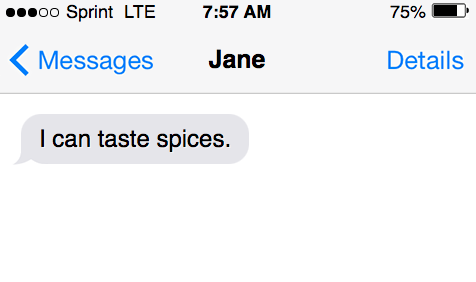
However, some of the most commonly used ones are:
- Door
- Books
- Table
- Computer
- Mouse
- Keyboard
- Wire
- Laptop
- Shoes
- Head
- Spectacles
- Goggles
- Earphones
- Plants
- Flowers
- Curtains
- Chargers
- Lamp
- Light
- Box
- Boxers
- Wallet
- Calendar
- Cookies
- Bottle
- Pens
- Pencil
- Scale
- Weighing scale
- Chair
- Armchair
- Car
- Bike
- Bed
- Couch
- Bedsheet
- Stove
- Microwave
- Refrigerator
- Spoon
- Ladle
Concrete nouns list
Concrete nouns are identifiable by one or more of the five basic senses that even human beings possess. However, in most cases, concrete nouns are not restricted to being perceived by a single sense. Multiple senses can identify a single concrete item.
For instance: Food can be seen, touched, smelled, heard (crunchy), and tasted.
Here is a list of concrete nouns based on the senses by which they can be perceived:
Seeing
- Soccer ball
- Gift
- Suitcase
- Books
- Mobile
- Taco
- Car
- Bike
- Water
Hearing
- Ring
- Chirp
- Music
- Songs
- Explosion
- Gunshot
- Screams
- Whistle
- Shouting
- Snores
Touch
- Fur
- Silk
- Raindrops
- Sand
- Water
- Currency
Smell
- Grass
- Flowers
- Food
- Perfume
- Talcum Powder
- Spices
- Dirt
- Garlic
Taste
- Sugar
- Salt
- Chocolate
- Icecream
- Taco
- Soy Sauce
- Steak
- Chicken
- Honey
- Chillies
- Spices
Complete list of concrete nouns
There are hundreds of concrete nouns. Everything around us is a concrete noun. To make this point more straightforward, here is a list of concrete nouns.
- Apple
- Bat
- Blouse
- Cookware
- Flower
- Gold
- Ankle
- Bermuda
- Car
- Castle
- Fur
- Grain
- Aunt
- Blade
- Cat
- Cabin
- Foot
- Guava
- Ambulance
- Blender
- Cot
- Cooker
- Frog
- Giraffe
- Alligator
- Bed
- Coat
- Church
- Foam
- Girl
- Architect
- Butter
- Card
- Cello
- Fish
- House
- Aircraft
- Boxers
- Cup
- Computer
- Factory
- Horn
- Air conditioner
- Bill
- Cloud
- Clock
- Forest
- Hockey
- Airplane
- Bulb
- Concrete
- Dog
- Father
- Hat
- Apartment
- Bookcase
- Cement
- Deer
- Fork
- Hostel
- Ant
- Bones
- Cap
- Duck
- Gun
- Hospital
- Anteater
- Belt
- Crow
- Doll
- Goat
- Hammer
- Arms
- Bra
- Children
- Desk
- Ginger
- Hedge
- Armpit
- Blazer
- Cafe
- Desktop
- Guitar
- Hedgehog
- Armchair
- Bag
- Coffee
- Dumpster
- Garlic
- Head
- Arrow
- Bucket
- Chair
- Egg
- Grandparent
- Hut
- Ball
- Boy
- Cabinet
- Elephant
- Galaxy
- Hotel
- Books
- Belly
- Cupboard
- Earrings
- Glass
- Heels
- Bird
- Butt
- Crow
- Fox
- Gloves
- Ice
- Bowl
- Balloons
- Crest
- Fruit
- Geese
- Icicle
- Icecream
- Lungs
- Oil
- Root
- Shirt
- Television
- Igloo
- Lump
- Oven
- Rug
- Sparrow
- Toothpaste
- Jacket
- Lamp
- Parrot
- Rat
- Shoulder
- Tail
- Jug
- Mouth
- Pigeon
- Ramp
- Stout
- Towel
- Jumper
- Musician
- Plate
- Ring
- Stump
- Tissue
- Juicer
- Mother
- Pulse
- Ribs
- Shield
- Umbrella
- Jewelry
- Mat
- Paddle
- Rainbow
- Shirt
- Undergarments
- Kite
- Medicine
- Pump
- Remote
- Suitcase
- Whale
- Keyboard
- Microscope
- Prune
- Refrigerator
- Suit
- Watch
- Keys
- Microwave
- Paint
- Rice
- T-shirt
- Wolf
- Kangaroo
- Machine
- Pasta
- Road
- Trumpet
- Wallet
- Kid
- Man
- Pumpkin
- Spoon
- Top
- Whiskers
- Knife
- Nest
- Popcorn
- Sun
- Tub
- Yarn
- Leg
- Neck
- Plant
- Sardines
- Torch
- Wings
- Lawn
- Necklace
- Perfume
- Soup
- Tower
- Water
- Ladle
- Noodle
- Quilt
- Shoes
- Table
- Waiter
- Lion
- Needle
- Queen
- Sandals
- Turkey
- Wound
- Lard
- Owl
- Rabbit
- Sand
- Toes
- Zebra
- Library
- Otter
- Razor
- Sanitizer
- Train
- Zoo
- Lips
- Orange
- Romper
- Suitcase
- Trucks
- Xylophone
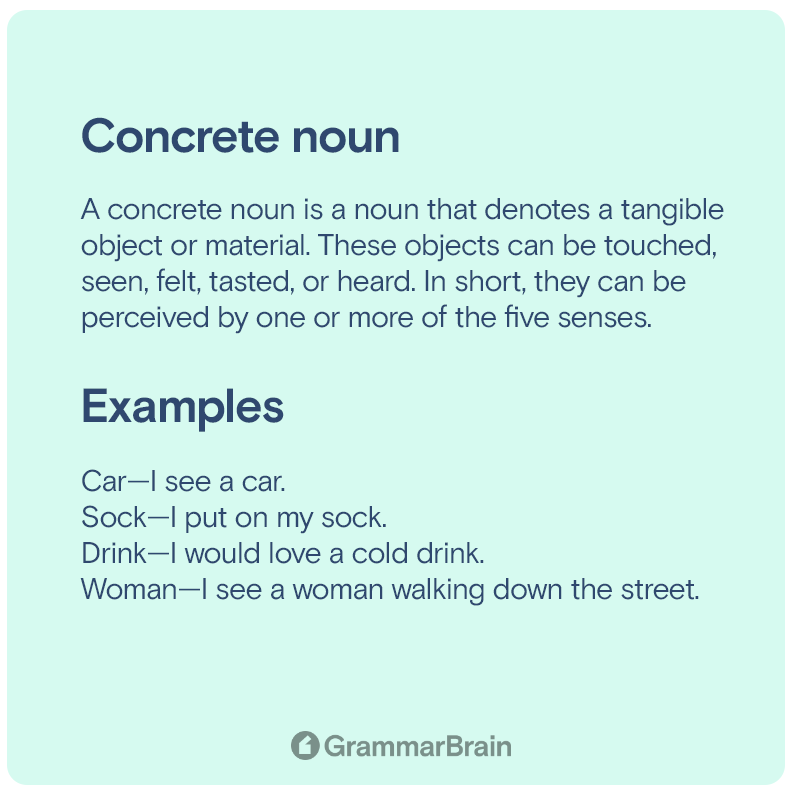
Common questions
Common questions about concrete nouns.
Why are concrete nouns pluralized?
In common sentences, we can refer to the concrete noun in many instances. For examples, “I can smell spices” is a way of referring to the many spices in the smell. The concrete noun is the word “spices” in this example. It is something our senses can observe.
What is an easy way to remember the difference between concrete and abstract nouns?
Concrete nouns are tangible things. A car, a bike, a woman. And abstract nouns are intangible things, like the words courage, spirit, or strength.
More on nouns
More resources about nouns:
- Possessive nouns
- Irregular plural nouns
- Proper nouns
- Concrete nouns
- Collective nouns
- Possessive and plural nouns
Sources
- Concrete Nouns vs. Abstract Nouns
- Concrete Nouns
- Useful list of Concrete Nouns
- Concrete and Abstract Nouns
- Concrete Nouns
- What is a Concrete Noun
- Guide to Concrete Nouns
- Concrete and Abstract Nouns
- Concrete Noun
- Concrete Nouns: Meaning and Examples
Inside this article
Fact checked:
Content is rigorously reviewed by a team of qualified and experienced fact checkers. Fact checkers review articles for factual accuracy, relevance, and timeliness. Learn more.
Core lessons
Glossary
- Abstract Noun
- Accusative Case
- Anecdote
- Antonym
- Active Sentence
- Adverb
- Adjective
- Allegory
- Alliteration
- Adjective Clause
- Adjective Phrase
- Ampersand
- Anastrophe
- Adverbial Clause
- Appositive Phrase
- Clause
- Compound Adjective
- Complex Sentence
- Compound Words
- Compound Predicate
- Common Noun
- Comparative Adjective
- Comparative and Superlative
- Compound Noun
- Compound Subject
- Compound Sentence
- Copular Verb
- Collective Noun
- Colloquialism
- Conciseness
- Consonance
- Conditional
- Concrete Noun
- Conjunction
- Conjugation
- Conditional Sentence
- Comma Splice
- Correlative Conjunction
- Coordinating Conjunction
- Coordinate Adjective
- Cumulative Adjective
- Dative Case
- Determiner
- Declarative Sentence
- Declarative Statement
- Direct Object Pronoun
- Direct Object
- Diction
- Diphthong
- Dangling Modifier
- Demonstrative Pronoun
- Demonstrative Adjective
- Direct Characterization
- Definite Article
- Doublespeak
- False Dilemma Fallacy
- Future Perfect Progressive
- Future Simple
- Future Perfect Continuous
- Future Perfect
- First Conditional
- Irregular Adjective
- Irregular Verb
- Imperative Sentence
- Indefinite Article
- Intransitive Verb
- Introductory Phrase
- Indefinite Pronoun
- Indirect Characterization
- Interrogative Sentence
- Intensive Pronoun
- Inanimate Object
- Indefinite Tense
- Infinitive Phrase
- Interjection
- Intensifier
- Infinitive
- Indicative Mood
- Participle
- Parallelism
- Prepositional Phrase
- Past Simple Tense
- Past Continuous Tense
- Past Perfect Tense
- Past Progressive Tense
- Present Simple Tense
- Present Perfect Tense
- Personal Pronoun
- Personification
- Persuasive Writing
- Parallel Structure
- Phrasal Verb
- Predicate Adjective
- Predicate Nominative
- Phonetic Language
- Plural Noun
- Punctuation
- Punctuation Marks
- Preposition
- Preposition of Place
- Parts of Speech
- Possessive Adjective
- Possessive Determiner
- Possessive Case
- Possessive Noun
- Proper Adjective
- Proper Noun
- Present Participle
- Prefix
- Predicate



